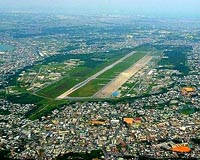| . |  |
. |
Berlin (UPI) Jan 14, 2009 It would be naive to believe that German arms sales are free from corruption, said an expert familiar with the industry. "It's not unusual that major export deals are linked to bribery payments, and that's true for the arms industry as it is for most big export industries," Ottfried Nassauer, director of the Berlin Information Center for trans-Atlantic Security, a security think tank, earlier this week told the foreign press corps in the German capital. "If a submarine costs 500 million euros ($725 million), then it's easy to hide a few millions here and there." Germany is one of the world's major arms exporters. According to the Stockholm International Peace Research Institute, the country is now No. 3 in the global market, trumped only by Russia and the United States. Companies including ThyssenKrupp Marine Systems, Rheinmetall and Krauss-Maffei Wegmann develop high-quality submarines, ships, armored vehicles and tanks. And European Aeronautic Defense and Space Co., a multinational giant producing all kinds of airplanes and helicopters, has a strong German profile. Despite government pledges to issue more restrictions when it comes to arms deals, the industry's activities have expanded in recent years. Germany exported conventional weapons -- such as submarines, tanks or helicopters -- worth around $12 billion between 2004 and 2008. (Small arms and weapons parts amount to roughly the same amount.) Compared with 1999-2003, German arms exports increased by 70 percent, SIPRI says. While the sector isn't that important when it comes to total workforce -- the German sub industry, which exports all over the world, for example, employs only 2,500 people -- it is a major one regarding sales. And that's fine breeding ground for corruption. There are rumors that German companies sold sub technology to South Africa when it was still under an embargo. It is also believed that senior managers of German and French companies received bribery payments for arms deals with South Africa. Nassauer said he tried to create a project researching the arms deals between European companies and South Africa. "No one, not even NGOs, wanted to have a hand in it. It was too hot," he said. At home, German defense companies have in the past decades cultivated excellent contacts with officials in most major parties. Next week will see the opening of the proceedings against Karlheinz Schreiber, accused of tax evasion and paying millions of dollars in bribes to Chancellor Helmut Kohl's conservatives in exchange for arms deals. For now, Schreiber is behind bars, but lobbying continues: German news magazine Der Spiegel has recently reported that lawmakers from the government Social Democrats and Chancellor Angela Merkel's conservatives have in the past acted on behalf of arms companies in the policymaking process. A group of politicians from the states that are home to the shipbuilding industry is so eager to preserve the industry that Nassauer and other experts have labeled them the "Coast Mafia." The current government of conservatives and the newly elected pro-business Free Democrats is equally determined to lend more support to the German defense industry, Nassauer said. Berlin feels that German companies should not suffer too greatly from the global downturn because of restrictive domestic export rules while their counterparts in France receive open political backing, Nassauer said. The Free Democrats, he added, have always had good contacts in the Middle East, to where German arms sales "will likely be reanimated." All in all, 2010 could be a good year for the German defense industry: Its interaction with politics is a "well-functioning closed shop," Nassauer said.
Share This Article With Planet Earth
Related Links The Military Industrial Complex at SpaceWar.com Learn about the Superpowers of the 21st Century at SpaceWar.com
 Clinton gets no commitment from Japan on ending air base row
Clinton gets no commitment from Japan on ending air base rowHonolulu, Hawaii (AFP) Jan 11, 2010 Secretary of State Hillary Clinton pressed her Japanese counterpart here Tuesday to stick by a deal on moving a controversial US air base, but got no commitment from Tokyo during the meeting. At hastily-arranged talks with Foreign Minister Katsuya Okada in Honolulu, Clinton said she had stressed the need to resolve the fate of the Futenma base on the southern Japanese island of Okinawa. ... read more |
|
| The content herein, unless otherwise known to be public domain, are Copyright 1995-2009 - SpaceDaily. AFP and UPI Wire Stories are copyright Agence France-Presse and United Press International. ESA Portal Reports are copyright European Space Agency. All NASA sourced material is public domain. Additional copyrights may apply in whole or part to other bona fide parties. Advertising does not imply endorsement,agreement or approval of any opinions, statements or information provided by SpaceDaily on any Web page published or hosted by SpaceDaily. Privacy Statement |